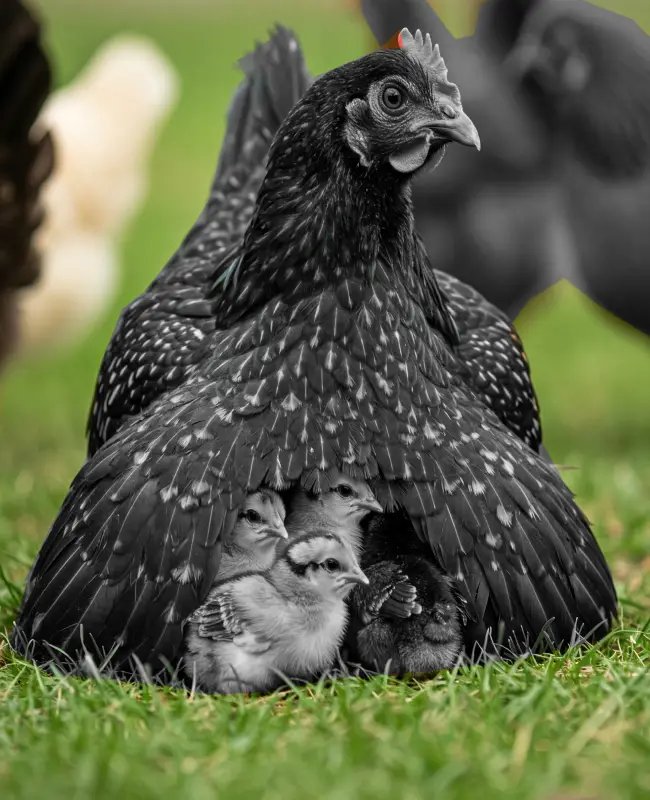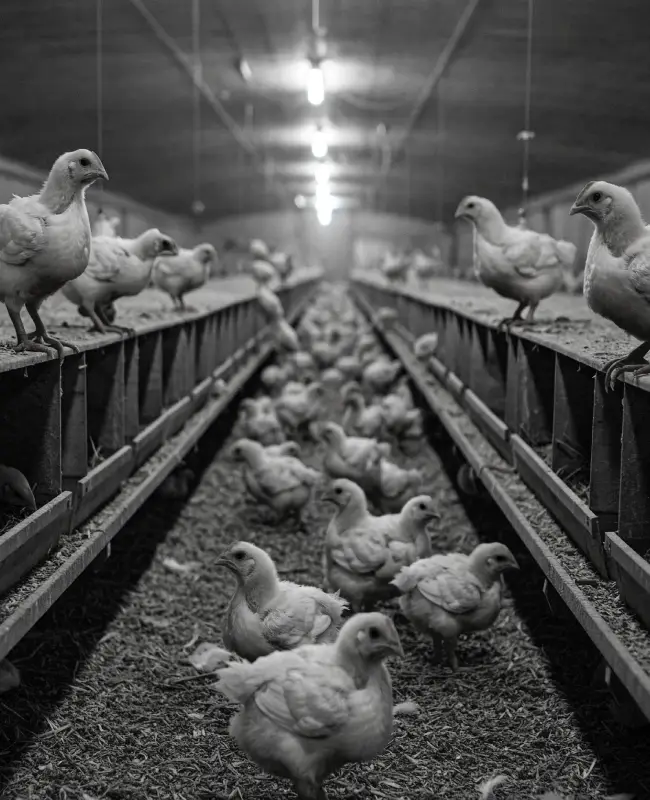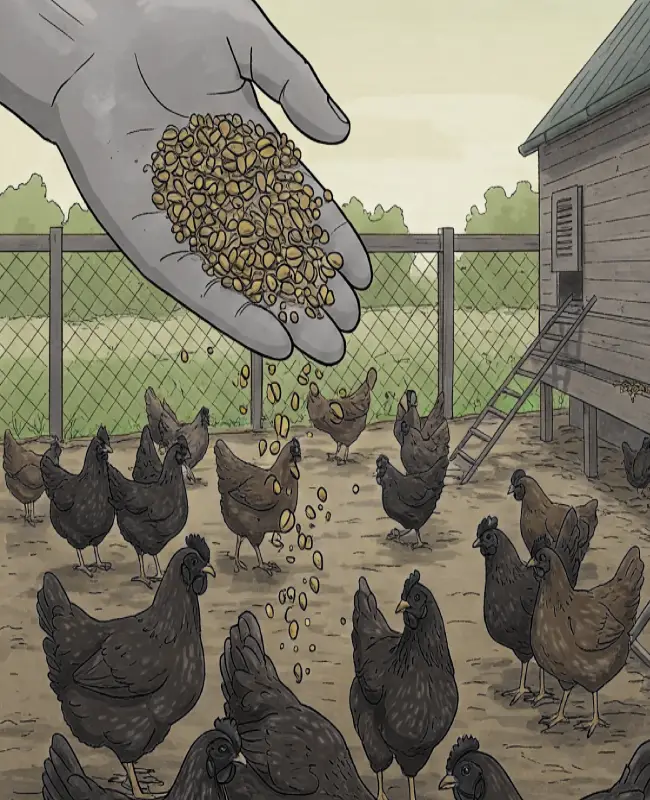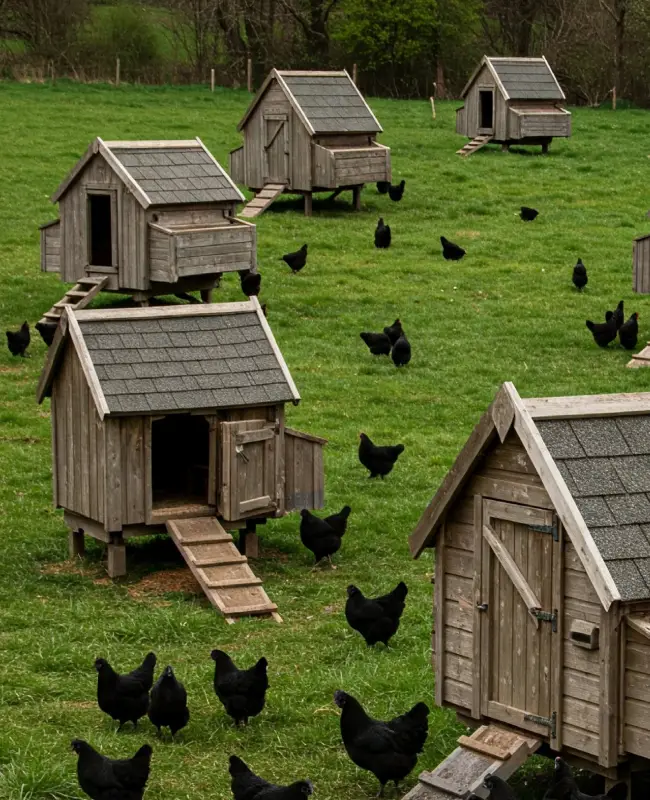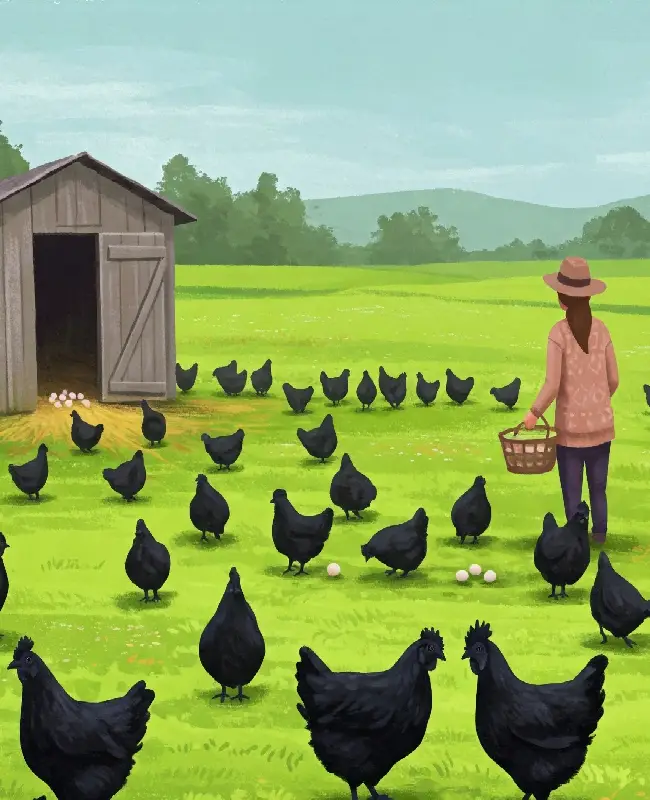About
Egg farming is the process of raising hens specifically for the production of eggs. It begins with hatching chicks, raising them into healthy laying hens,
and providing proper housing, nutrition, and care. Hens are usually kept in clean, safe environments with access to food, water, and nesting areas.
Once they start laying, eggs are collected daily, cleaned, and stored for sale or consumption. Modern egg farming focuses on animal welfare, hygiene,
and sustainable practices to ensure high-quality and safe eggs.

🥚 Incubation of Eggs
- Fertilized eggs are selected for hatching.
- Eggs are placed in an incubator with controlled temperature (around 99.5°F or 37.5°C) and humidity./span>
- Eggs are turned regularly (automatically in most incubators) to mimic natural nesting.
- Incubation takes around 21 days
- Candling (using a light to check embryo development) is done around day 7–10.

